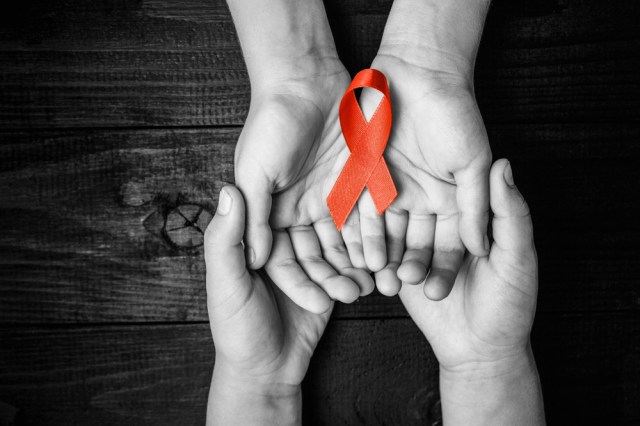Course Summary
Practice Level: Intermediate
As a result of advanced treatment options and increased access to quality health care, the number of people diagnosed with human immunodeficiency virus infection (HIV) and acquired immunodeficiency syndrome (AIDS) has been decreasing in the United States. With proper diagnosis and treatment, people can live symptom-free for a significant length of time. Comprehensive prevention strategies and education for human services and mental healthcare clinicians, including social workers, psychologists, marriage and family therapists, counselors, and their patients is important to help reduce the spread of the disease. Although it remains a chronic condition without a cure, new treatment guidelines and antiretroviral drugs have provided hope for individuals infected with HIV to live longer. Continuing education for those human service and mental healthcare professionals caring for men, women and children with HIV/AIDS helps to assess behavioral risk, offer pre- and post-diagnosis counseling, dispel myths and reduce stigma, enhance a fuller understanding of best practice trends, and improve prevention strategies to avoid transmission of the disease and complications associated with disease progression and/or treatment.
Course Format
This course contains downloadable online lessons (PDF) and a practice test. When you’re ready, purchase the course by clicking the “Add To Cart” button. This will let you take the test, complete the course evaluation and receive your certificate for CE credits.
Learning Objectives
- Describe HIV and AIDS.
- Explain the transmission of HIV.
- Discuss HIV screening including testing recommendations, behavioral risk assessment interviews, and pre- and post-test counseling.
- Identify HIV transmission prevention strategies.
- Recognize HIV testing recommendations and the clinical stages of HIV infection.
- Describe HIV treatment, treatment planning, and special populations.
- Recognize social and cultural issues in HIV.
Course Syllabus
Authors
Dana Bartlett, RN, BSN, MSN, MA, CSPI
Dana Bartlett is a professional nurse and author. His clinical experience includes 16 years of ICU and ER experience and over 20 years of as a poison control center information specialist. Dana has published numerous CE and journal articles, written NCLEX material, written textbook chapters, and done editing and reviewing for publishers such as Elsevier, Lippincott, and Thieme. He has written widely on the subject of toxicology and was recently named a contributing editor, toxicology section, for Critical Care Nurse journal. He is currently employed at the Connecticut Poison Control Center and is actively involved in lecturing and mentoring nurses, emergency medical residents and pharmacy students.
Susan DePasquale, MSN, FPMHNP-BC
Susan DePasquale is a board certified Family Psychiatric Mental Health Nurse Practitioner. Her current practice is with youth and adults who have mental illnesses in both inpatient and outpatient settings. She completed her Masters of Art in Political Science at the University of Victoria, British Columbia with a focus on the Inuvialuit Western Arctic Land Claim and Political-Economic Development, Masters of Science in Nursing at Seattle Pacific University in Seattle, Washington with a focus in neurogastroenterology and the Post-Masters of Science in Nursing at the Montana State University in Bozeman, Montana with a focus in psychiatry. She has worked with small and rural healthcare teams in British Columbia and the Northwest Territories, Canada, and at the Providence Health and Virginia Mason Medical Center in Seattle Digestive and Liver Disease Departments. She is an associate of the ROME foundation, an international organization raising awareness on functional gut disorders. Susan has been actively involved in Ce4Less and has over 15 years of experience in continuous education for health professionals. Since 2014, she has been affiliated with the Montana State Hospital at Warm Springs, the Galen Forensic Mental Health Facility, part of the Montana State Hospital, Youth Dynamics Inc, Aware Inc, and Insight Telepsychiatry for Montana and Wisconsin communities. She enjoys combining work with play in the Pacific Northwest of Washington State and British Columbia and in Western Montana where she relishes in a variety of scenic outdoor ocean and mountain activities with family and friends.
Lys Hunt, MSW, LICSW
M. Lys Hunt, LICSW is a licensed independent clinical social worker who has been practicing social work for over 20 years. She earned her master’s degree from the Boston University School of Social Work and completed a post graduate fellowship at Boston Children’s Hospital. Her clinical work specializes in the areas of mental health and child and family welfare.
Accreditation Approval Statements
CE4Less.com, provider #1115, is approved as an ACE provider to offer social work continuing education by the Association of Social Work Boards (ASWB) Approved Continuing Education (ACE) program. Regulatory boards are the final authority on courses accepted for continuing education credit. ACE provider approval period: 08/08/21-08/08/24. Social workers completing this course receive 3 clinical continuing education credits.
Courses have been approved by CE4Less.com, as a NAADAC Approved Education Provider, for educational credits. NAADAC Provider #91345 CE4Less.com is responsible for all aspects of the programming.
We are committed to providing our learners with unbiased information. CE4Less never accepts commercial support and our authors have no significant financial or other conflicts of interest pertaining to the material.


